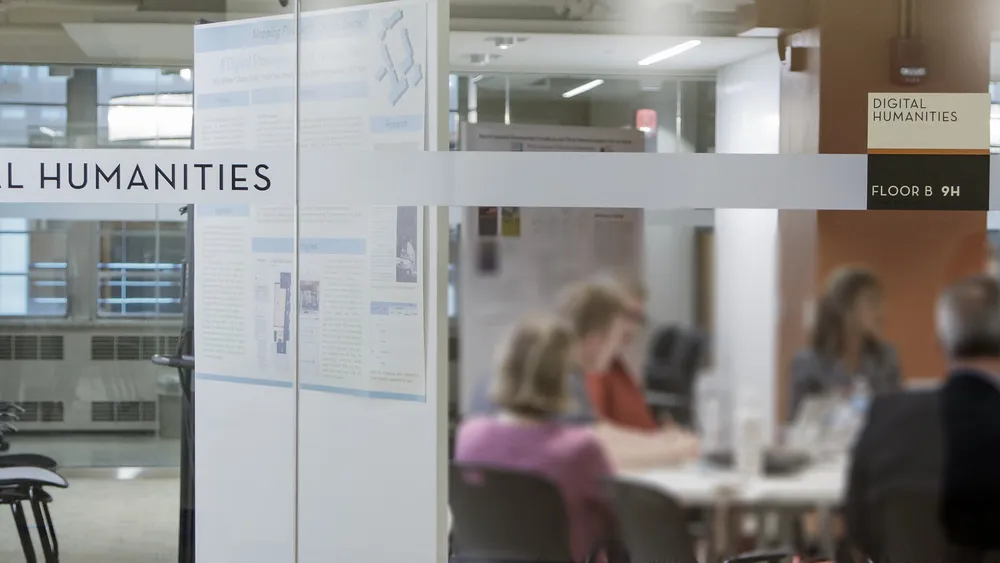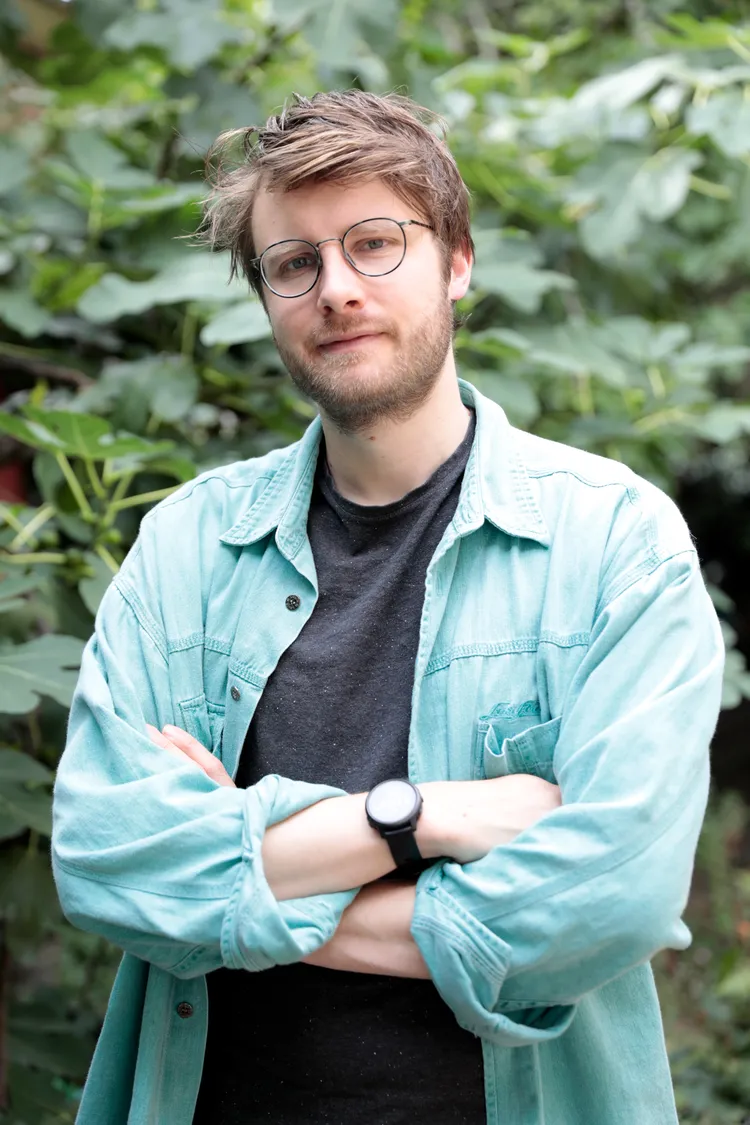Meet the CDH Postdocs: Wouter Haverals
2 December 2023
Wouter Haverals is a Postdoctoral Research Associate at the Center for Digital Humanities and a Perkins Fellow at the Humanities Council.

This academic year, we welcomed three new postdocs to the Center for Digital Humanities. Read our interview with CDH/MARBAS postdoc Christine Roughan and check back in the coming weeks for a Q&A with CDH/African Language Technologies postdoc Happy Buzaaba.

Wouter Haverals is a Postdoctoral Research Associate at the Center for Digital Humanities and a Perkins Fellow at the Humanities Council.
Tell us a little about your academic interests.
My interests are quite diverse and inherently driven by curiosity. I am most engaged by literary research that merges a humanistic approach—centered around a core research question—the potential of computational thinking to address that question. I am also equally fascinated by the reverse scenario: using the structured thinking of computers, with their logic of if-else-then statements, how can we dissect complex phenomena of, let’s say, the use of abbreviations by medieval scribes? This process requires a kind of abstraction of complex materials into computable data, a challenge that echoes across all research strategies and methodologies. Yet, when we engage computers in this conversation, a compelling dialogue emerges, namely between the nuanced, intricate and often chaotic product of human intellect, and the binary precision of machines. The tension this creates, I find particularly intriguing.
How did you get interested in digital humanities?
I’ve always been fascinated by computers. When I was a teenager, my parents allowed me to dismantle our old family computer—only for me to accidentally blow it up a few days later. Consider that explosion my big bang of interest in the ‘digital’ aspect of Digital Humanities. As for the humanities part, my academic background is in medieval literature. During my master’s year at the University of Antwerp, I took a course both enthusiastically and masterfully taught by professors Frank Willaert and Mike Kestemont, blending medieval literature with computational text analysis. The potential of combining these disciplines captivated me—it was (and still is) thrilling. The course not only met my expectations but also ushered me into the field of Digital Humanities. I am looking forward to the Spring semester, when I will teach the course ‘Introduction to Digital Humanities’ and hope to instill the same enthusiasm in Princeton’s undergraduate students.
What project(s) do you plan to work on during your time as a postdoc?
I’m excited about a project I’m undertaking at the CDH on the processes of literary canonization. Using the resources from the Princeton Prosody Archive, which boasts an extensive collection of English prosody and versification handbooks, spanning from 1559 to 1927, I plan to map out how these works have shaped the canonical status of certain authors. For instance, consider how often Shakespeare’s line “from forth the fatal loins of these two foes” is employed to illustrate alliteration. Such instances highlight the significant yet often overlooked role that pedagogical choices play in the canonization process. Through extracting and contextualizing references within these educational materials, I aim to delineate the impact these texts have had on establishing poetic and prosodic norms.
What have you enjoyed about working at the CDH so far?
The collegial spirit at the CDH is really amazing! Despite having joined just three months ago, I feel fully integrated. Research in Digital Humanities is, by nature, interdisciplinary, and the CDH is an environment where people from various backgrounds and with different interests come together. Each person brings their expertise to the table, fostering an open environment that not only serves as an ideal setting for individual research but also provides a rich breeding ground for the kind of exciting projects that Digital Humanities engages with. Other than that, the CDH’s well-stocked snack closet is also something I really enjoy.